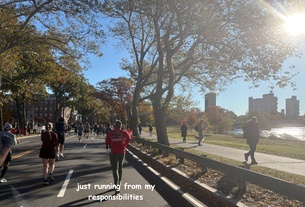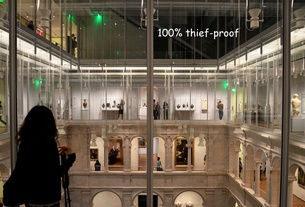Harvard’s current large-scale fundraising drive is not nearly the first such venture in the University’s 377-year history. During his tenure as Harvard president from 1991 to 2001, English professor Neil L. Rudenstine led Harvard’s last capital campaign, and the first that stretched across nearly all of the University’s disparate schools.
As The Harvard Campaign progresses through its public phase’s first year, Rudenstine spoke with The Crimson about the experiences and lessons learned during Harvard’s last drive, both from the perspective of a fundraising president and of an institution trying to prepare itself financially for a new millenium. The interview has been edited for clarity and concision.
{shortcode-afb86d669bb0a48e5dd8495cb3e2064262732c97}
The Harvard Crimson: I know that you led a really large capital campaign when you were here as president, and I’m curious as to how much of your time you devoted to the campaign and to talking with donors and traveling.
Neil L. Rudenstine: Well, I think one would have to say that it’s irregular: that is, there are times when it’s very intense and one might be giving as much as two-thirds of one’s time to the campaign at crucial moments. At other times, much less intense, and so it might shrink down to a quarter time or something like that. And I had...my own rule that it should never go beyond 30 or 40 percent of my time, no matter how important it was, as an average. There were just too many other academic and other things to attend to that had obvious, very high priority. And while the campaign was an immense priority as well, one just had to ration what one did.
THC: Speaking to that, when you were working on the campaign speaking to donors, how did you decide what to prioritize, and when the campaign would take priority?
NLR: It wasn’t so rational a decision in the sense that one could sort of sit back and say, ‘Well this week I’ll do this, and then two weeks later, I’ll do that.’ Doing a campaign involved an enormous amount of logistical and other kinds of work. And it depends as much upon other people and their timing as it does upon one’s own. So, you simply have to be careful not to get too much on the docket so to speak in advance…. For example, we went to the far east and visited Hong Kong and mainland China, [Korea], and Japan and Taiwan. And that probably took the better part of a year to plan, and once one got everything lined up, one was simply committed to it. And so, as I said, its a two-way street in the sense that you try to do as much as you can to shape it, but at the same time it depends an enormous amount on the schedules...of other people.
THC: Speaking to traveling internationally, as well as I’m sure domestically, when you were going to a new city or a new country, how did you spend your days on the road? What was it like when you were in a new city and speaking to donors? What did your schedules look like?
NLR: Well, you weren’t only speaking with donors, of course. We tried very hard to make sure that there was a mix of people. Donors, obviously, are the largest part of it. But when we went to Japan, for example, we met with the prime minister and some members from the government. Then, the next day we had an audience [with] the Emperor and Empress and then the Crown Prince and Crown Princess…. So, the schedule was definitely not simply a donor-driven schedule.
We spent, I guess, a whole afternoon at a place called Katsura, which is the royal imperial families’ beautifully maintained gardens. And we also went to see some neat gardens somewhere else. So, if you don’t sort of try to immerse yourself to some extent in the culture as a whole to meet lots of different kinds of people, then you don’t learn anything much; and they don’t necessarily learn anything much. Part of the mission is to have a chance to discuss important issues or less important issues with all kinds of people. And as I said, one obviously spends a fair amount of time talking to donors as well. But I would say that probably no more than half the time was devoted to donors, and a good deal of time to these other kinds of activities.
THC: Did you similarly spend about half the time, no more than that, talking to donors when you were traveling domestically as well?
NLR: Well, as I said, there were times when it was more than that depending on schedules and there were times when it was less than that. And I tried to keep it, as I said, sort of in the 40 percent range throughout the campaign or less because I wanted to make sure things on campus were properly attended to. And there were a lot of things going on educationally..., that simply had to take a high priority.
THC: Speaking to your responsibilities on campus and Cambridge and Mass. Hall, considering your kind of involvement in the campaign, compared to a non-campaign year, did you manage or delegate responsibilities any differently in a campaign year than you would have in a non-campaign year?
NLR: Well, to be honest, there weren't that many non-campaign years. I guess [in] the first three years, we were not in a public campaign, but we were already laying groundwork for the campaign and already talking quietly to donors because in order to make the kind of target we had set out for ourselves, we had to have raised a very substantial of money at the time we announced publicly what the campaign would be. So I arrived in 1991, and it wasn’t really long after that we began actively planning for the campaign because the campaign was going to last five years and the planning took at least two to three years. And I was there for a decade and my last year, of course, was a rather different kind of year. So I wouldn't say that there was a whole lot. One of the things I did do, though, very early on, was to create the position of provost. We had a rather small group of both associate provosts and myself in Massachusetts Hall, plus the five vice presidents. But that huge difference because provost did not evenly split a good number of days either on the road or at home.


